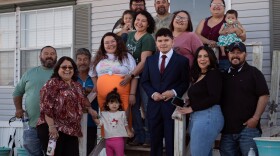A few hours after ProPublica and NPR issued the first in a series of reports about workers' compensation "reforms" sweeping the country, the Occupational Safety and Health Administration coincidentally released a paper linking workplace injuries to income inequality.
The OSHA paper and ProPublica/NPR stories come to similar conclusions about how some injured workers have been affected by a decade of changes in workers' compensation laws, including cutbacks in benefits and more difficulty in getting benefits.
But OSHA goes on to say that many injured workers and their families find themselves in "a trap which leaves them less able to save for the future or to make the investments in skills and education that provide the opportunity for advancement."
Among the paper's other major points:
"These injuries and illnesses contribute to the pressing issue of income inequality," said OSHA administrator David Michaels. "They force working families out of the middle class and into poverty, and keep the families of lower-wage workers from entering the middle class."
Copyright 2021 NPR. To see more, visit https://www.npr.org.





